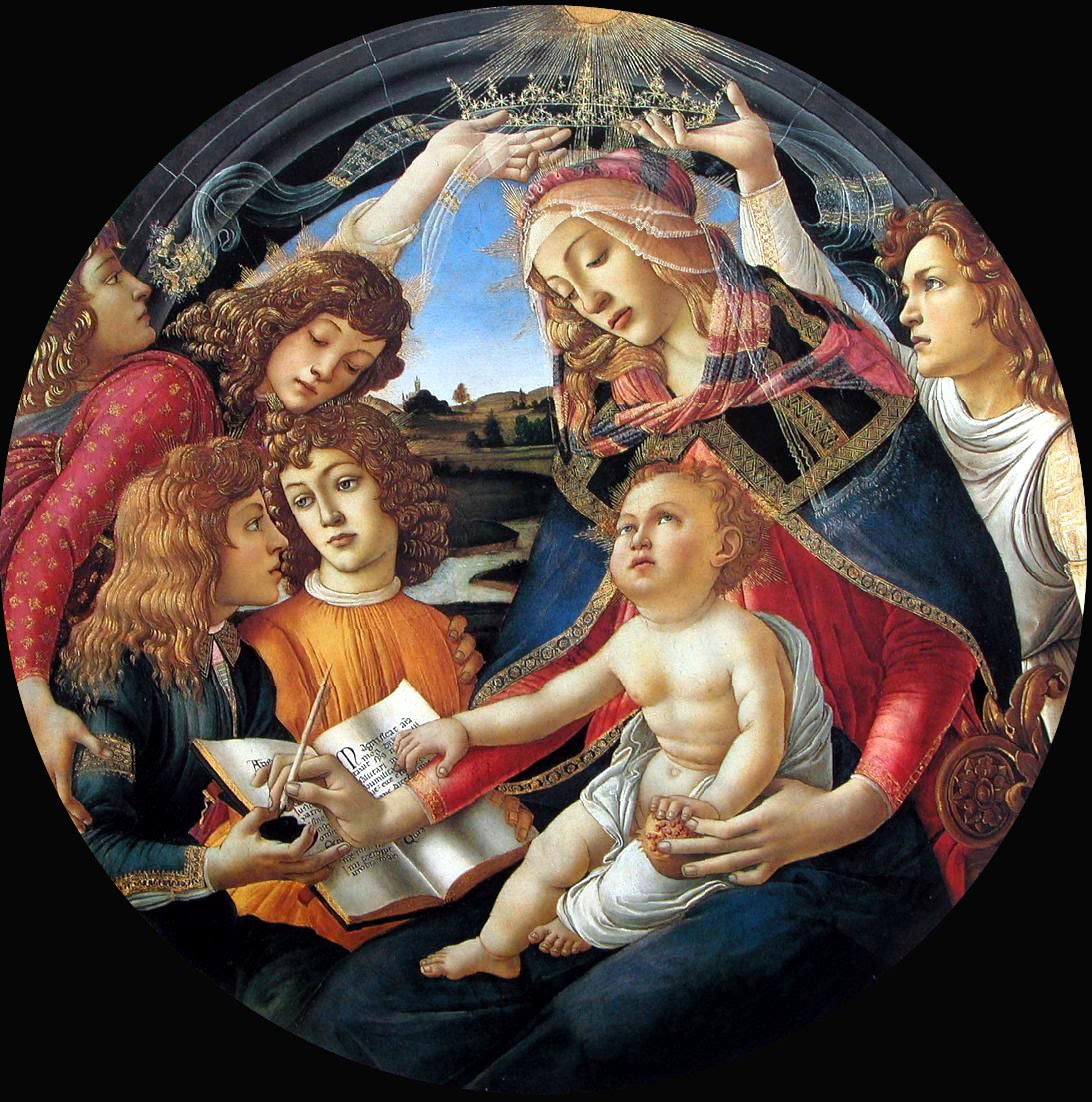Sunday
I am becoming enchanted with the poetry of William Bronk, someone introduced to me by poet and literary scholar Norman Finkelstein, my best friend in graduate school. In “Virgin and Child with Music and Numbers,” Bronk seeks the source of mystery, both in religion and in poetry. Like Mary’s Magnificat, poetry touches life’s spiritual dimensions, which are both compelling and impossible to pin down.
The song referred to in the poem is Mary’s Magnificat, recorded in Luke (1:39-55):
A few days later Mary hurried to the hill country of Judea, to the town where Zechariah lived. She entered the house and greeted Elizabeth. At the sound of Mary’s greeting, Elizabeth’s child leaped within her, and Elizabeth was filled with the Holy Spirit.
Elizabeth gave a glad cry and exclaimed to Mary, “God has blessed you above all women, and your child is blessed. Why am I so honored, that the mother of my Lord should visit me? When I heard your greeting, the baby in my womb jumped for joy. You are blessed because you believed that the Lord would do what he said.”
Mary responded,
“Oh, how my soul praises the Lord.
How my spirit rejoices in God my Savior!
For he took notice of his lowly servant girl,
and from now on all generations will call me blessed.
For the Mighty One is holy,
and he has done great things for me.
He shows mercy from generation to generation
to all who fear him.
His mighty arm has done tremendous things!
He has scattered the proud and haughty ones.
He has brought down princes from their thrones
and exalted the humble.
He has filled the hungry with good things
and sent the rich away with empty hands.
He has helped his servant Israel
and remembered to be merciful.
For he made this promise to our ancestors,
to Abraham and his children forever.”
Bronk then points out, however, “That was then/or that was for later, another time.” Since the singing, there has been “meanness” (perhaps social shunning for an out-of-wedlock pregnancy) and “the overhanging terror, and the need for flight soon” (the slaughter of the infants and flight into Egypt).
Does the singing transcend whatever happens? Perhaps Mary was just tricked (“cozened”), just as we may be tricked into thinking that poetry takes us into the realm of the numinous. Trying to resolve the conflict, Bronk shifts into a mathematical analogy that, because it involves numbers, fits nicely with poetry.
I’m a bit fuzzy on the math but Bronk appears to be saying that figuring out the mystery of Christ is like trying to break an integer down into its factors. We discover that what remains is greater than what we have factored out. It’s not exactly saying that the whole is greater than the sum of its parts but that’s the general idea. One might also say that breaking down a poem into its numbers doesn’t capture the full essence of the poem.
So how does this apply to the birth of Jesus? Mary’s joy, and our own, does not make logical or mathematical sense. We look at the factors, add up the numbers, and find ourselves “held somewhere in the void of whole despair.” We are like Mary looking at all that has gone wrong following the pregnancy. Yet instead of surrendering to this despair, we also find ourselves “enraptured.” Only in this tension between despair and rapture “does the world endure.”
“Endure” is an interesting word in this context. On the one hand, the world itself seems dependent on the way we see it, a paradox existing between matter-of-fact reality that does not live up to the angel’s pledge and miraculous possibility. On the other hand, we ourselves endure because, without losing sight of the world’s dispiriting reality (we are not satisfied or fulfilled and cannot hope to be so), we are lifted up by poetry as Mary was lifted up by the Magnificat.
Therefore the poet instructs Mary to sing to “this Baby, even so.” Surrender to poetry’s miraculous transcendence, even though it doesn’t add up.
Virgin and Child with Music and Numbers
By William Bronk
Who knows better than you know,
Lady, the circumstances of this event
–meanness, he overhanging terror, and the need
for flight soon–hardly reflect the pledge
the angel gave you, the songs you exchanged in joy
with Elizabeth, your cousin? That was then
or was for later, another time. Now–
Still, the singing was and is. Song
whether or not we sing. The song is sung.
Are we cozened? The song we hear is like
those numbers we cannot factor whose overplus,
an indeterminate fraction, seems more than the part
we factor out. Lady, if our despair
is to be unable to factor ourselves in song
or factor the world there, what should our joy
be other than this same integer that sings
and mocks at satisfaction? We are not
fulfilled. We cannot hope to be. No,
we are held somewhere in the void of whole despair,
enraptured, and only there does the world endure.
Lady, sing to this Baby, even so.
